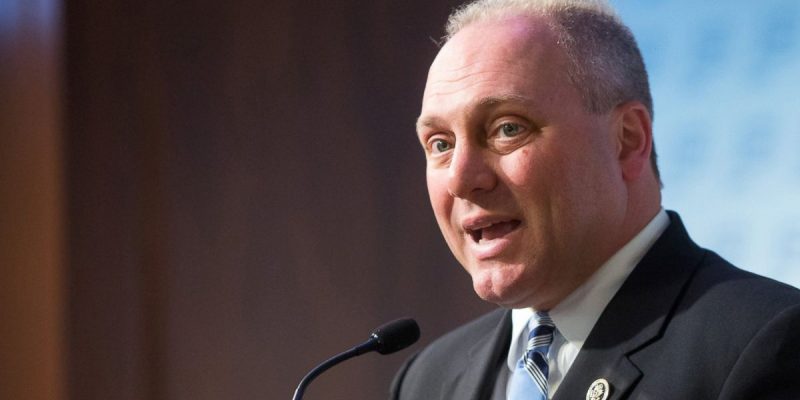This wasn’t very much in doubt, of course, as there were always enough votes in the House to pass tax reform. But the process of whipping the bill, which as the House Majority Whip falls to Scalise to oversee, has gone fairly smoothly by modern congressional standards.
Republicans are aiming to quickly pass sweeping tax-reform legislation.
A bill unveiled by House Republicans would slash corporate taxes, reduce some individual tax rates and eliminate a number of breaks. But conservative and centrist lawmakers have raised concerns about many of the provisions.
Republicans from high-tax states like New York and California are worried about cutting back state and local tax deductions. Conservatives have concerns about adding a new tax bracket for millionaires and about the bill’s impact on the deficit.
The House Ways and Means Committee approved the bill last week and House Majority Leader Kevin McCarthy is aiming for a floor vote Thursday.
Assuming all Democrats vote against the GOP bill, Republican leaders can afford no more than 22 defections.
The Hill has a tick sheet on the legislation, and so far they only have 10 “no” votes among the GOP’s caucus – five of them from New York and three from New Jersey, plus Darrell Issa from California and Walter Jones of North Carolina. Jones says he’s voting against the bill because it will raise the deficit; the rest are “no” votes because of the state tax deduction issue.
That’s a rather fascinating debate in itself, of course, because by allowing a deduction for state or local income taxes on federal tax returns essentially what the government is doing is subsidizing higher state income taxes. That means essentially robbing low-tax states of some of the competitive benefits their policy choices ought to offer in terms of being more attractive to high earners living there. Obviously this doesn’t play a major role in where people move; the ability to write off state taxes on federal returns certainly hasn’t stopped people from leaving California for Texas, for example. But by addressing this issue in the bill, the GOP could well be setting up its Republicans in high-tax blue states for trouble in 2018.
Then again, what’s the point of having a majority if you can’t use it to make good policy? Besides, by eliminating that deduction you’re now putting pressure on those high-tax states to lower their taxes, and the pressure will come from the citizens of those states who just got a tax increase (though not necessarily on net, since most of them will likely see a lower overall rate). That might actually help to elect a GOP governor or state legislators in some of those states, though it could be a negative with respect to congressional elections.
The Hill says another 11 GOP House members are undecided or unclear on the bill. If all of them are no votes, which is not going to be the case; Scalise is going to get some of them, then assuming no other “no” votes surface there is still enough support for the plan to pass it on to the Senate – which is working on a different version of the bill and, if that can pass in the Senate, they’ll cobble together some hybrid of the two in a conference committee.
Advertisement
The Senate looks like a far dicier environment to get anything passed, which is typical; the Senate’s GOP caucus is exceptionally weak and its leadership is astonishingly ineffective.
But from Scalise’s perspective, things are a bit sunnier. He’s been definitive in saying the bill will pass the House, and as of right now it looks like he’ll be right.
Advertisement
Advertisement

